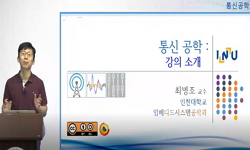본 연구는 한국인 폴란드어 학습자의 문법적 오류를 분석하고, 이를 활용한 효과적인 교수 방안 고찰을 목표로 한다. 언어 학습에서 오류 분석은 교수자에게는 학습자가 학습한 내용을 잘 ...
http://chineseinput.net/에서 pinyin(병음)방식으로 중국어를 변환할 수 있습니다.
변환된 중국어를 복사하여 사용하시면 됩니다.
- 中文 을 입력하시려면 zhongwen을 입력하시고 space를누르시면됩니다.
- 北京 을 입력하시려면 beijing을 입력하시고 space를 누르시면 됩니다.

한국인 폴란드어 학습자의 오류 분석과 효율적인 교육 방안 고찰 = Error Analysis of Korean learners of Polish and Effective Teaching Strategies
한글로보기부가정보
국문 초록 (Abstract)
또한 오류 분석과 더불어 교수자의 피드백은 유창성을 중시하는 최근의 언어 학습에서 학습자들이 목표어를 보다 정확하게 사용할 수 있도록 하는
본 연구는 한국인 폴란드어 학습자의 문법적 오류를 분석하고, 이를 활용한 효과적인 교수 방안 고찰을 목표로 한다. 언어 학습에서 오류 분석은 교수자에게는 학습자가 학습한 내용을 잘 이해하고 올바르게 사용하는지를 파악하는 중요한 과정 중 하나이며, 학습자들의 불완전한 목표어 사용의 문제점을 찾고 잘못된 사용으로 인한 화석화 방지를 위해 반드시 필요하다. 또한 오류 분석과 더불어 교수자의 피드백은 유창성을 중시하는 최근의 언어 학습에서 학습자들이 목표어를 보다 정확하게 사용할 수 있도록 하는 중요한 역할을 한다. 본 연구에서는 학습 단계별로 성취도 평가 및 자유 글쓰기 형식으로 학습자 오류 자료를 수집하였다. 수집된 한국인 폴란드어 학습자들의 오류는 형태적, 통사적 유형에 따라 나누어 분석하였으며, 언어 간 또는 언어 내 오류 등 오류의 원인을 살펴보았다. 분석 자료를 바탕으로 효율적 교수를 위해 문법학습에서도 학습자 간 협력 학습을 기반으로 한 소규모 그룹 학습을 제안하였다. 협력 학습 과정에서 학습자들은 스스로 또는 상호 간 오류를 수정할 수 있으며, 교수자는 단순히 정답을 알려주는 것이 아니라 답을 찾아가도록 하는 조력자의 역할을 수행해야 한다. 소그룹 활동은 교수자가 학습자 개개인의 이해 정도를 파악하기 쉽고 이해 정도에 따라 오류 수정을 도와줌으로써 학생들의 이해를 개선시키고 학습의 효율을 높일 수 있을 것이다.
또한 오류 분석과 더불어 교수자의 피드백은 유창성을 중시하는 최근의 언어 학습에서 학습자들이 목표어를 보다 정확하게 사용할 수 있도록 하는
다국어 초록 (Multilingual Abstract)
Error analysis in language learning is one of the important processes for educators to understand how learners understand and use the contents correctly and it is necessary to find out problems of incomplete using of learners and to prevent fossilization by misuse. In addition to the error analysis, the professor's feedback plays an important role in using the target language more accurately in language learning that recently focused on fluency. So I also considered feedback methods for error correction.
For a start, I had collected Polish learners’ errors data in evaluations of student achievement and free writing for each stage of learning and this study analyzed the errors of Korean learners of Polish language according to the morphological and syntactical types and examined the causes of them such as interlingual and intralingual errors. For effective teaching I suggested “Small group lessons based on cooperative learning between learners”. In the course of cooperative learning, learners themselves or between learners can correct each other's errors. The professor should not simply tell the answer, but should act as a helper to find the answer. Small group activities will be more efficient because professors are more likely to grasp the degree of each student's understanding and can help the error correction of learner based on the understanding degree of the learner individual.
This study aimed to analyze grammatical errors of Korean learners of Polish and consider effective teaching strategies. Error analysis in language learning is one of the important processes for educators to understand how learners understand and use t...
This study aimed to analyze grammatical errors of Korean learners of Polish and consider effective teaching strategies.
Error analysis in language learning is one of the important processes for educators to understand how learners understand and use the contents correctly and it is necessary to find out problems of incomplete using of learners and to prevent fossilization by misuse. In addition to the error analysis, the professor's feedback plays an important role in using the target language more accurately in language learning that recently focused on fluency. So I also considered feedback methods for error correction.
For a start, I had collected Polish learners’ errors data in evaluations of student achievement and free writing for each stage of learning and this study analyzed the errors of Korean learners of Polish language according to the morphological and syntactical types and examined the causes of them such as interlingual and intralingual errors. For effective teaching I suggested “Small group lessons based on cooperative learning between learners”. In the course of cooperative learning, learners themselves or between learners can correct each other's errors. The professor should not simply tell the answer, but should act as a helper to find the answer. Small group activities will be more efficient because professors are more likely to grasp the degree of each student's understanding and can help the error correction of learner based on the understanding degree of the learner individual.
참고문헌 (Reference)
1 이정희, "한국어 오류 판정과 분류 방법에 관한 연구" 국제한국어교육학회 13 (13): 175-197, 2002
2 보로비악 안나, "폴란드어권 한국어 학습자를 위한 관형어 교육 방안 연구"
3 신승용, "중간언어와 오류 분석" 박이정 2011
4 한영주, "오류수정 피드백: 학습자 인식과 강의자 자기평가 및 실제" 한국언어과학회 19 (19): 295-317, 2012
5 권종분, "오류 수정 피드백이 프랑스어 쓰기 능력 향상에 미치는 영향 - 직접 피드백과 간접 피드백 중심으로 -" 프랑스학회 (73) : 5-36, 2015
6 Richards, Jack C., "언어 교육의 접근방법과 교수법 (Approaches & Methods I Language Teaching)" 케임 브리지 2017
7 유승만, "러시아어 교수법에 대한 제언" 러시아연구소 15 (15): 169-192, 2005
8 Mielczarek, A., "W poszukiwaniu nowych rozwiązań-Dydaktyka języka polski go jako obcego u progu XXI wieku. Władysław T. Miodunka, Anna Seretny red" Wydawnictwo Uniwersytety Jagiellońskiego 159-168, 2009
9 Szalkowska-Kim, Emilia, "Spotkania Polonistyk Trzech Krajów-Chinym Korea" Japonia - Rocznik 319-334, 2009
10 김서형, "New Persectives on Grammar Teaching in Second Language Classrooms" 한국문화사 2010
1 이정희, "한국어 오류 판정과 분류 방법에 관한 연구" 국제한국어교육학회 13 (13): 175-197, 2002
2 보로비악 안나, "폴란드어권 한국어 학습자를 위한 관형어 교육 방안 연구"
3 신승용, "중간언어와 오류 분석" 박이정 2011
4 한영주, "오류수정 피드백: 학습자 인식과 강의자 자기평가 및 실제" 한국언어과학회 19 (19): 295-317, 2012
5 권종분, "오류 수정 피드백이 프랑스어 쓰기 능력 향상에 미치는 영향 - 직접 피드백과 간접 피드백 중심으로 -" 프랑스학회 (73) : 5-36, 2015
6 Richards, Jack C., "언어 교육의 접근방법과 교수법 (Approaches & Methods I Language Teaching)" 케임 브리지 2017
7 유승만, "러시아어 교수법에 대한 제언" 러시아연구소 15 (15): 169-192, 2005
8 Mielczarek, A., "W poszukiwaniu nowych rozwiązań-Dydaktyka języka polski go jako obcego u progu XXI wieku. Władysław T. Miodunka, Anna Seretny red" Wydawnictwo Uniwersytety Jagiellońskiego 159-168, 2009
9 Szalkowska-Kim, Emilia, "Spotkania Polonistyk Trzech Krajów-Chinym Korea" Japonia - Rocznik 319-334, 2009
10 김서형, "New Persectives on Grammar Teaching in Second Language Classrooms" 한국문화사 2010
11 Zawadka, Joanna, "Nauczania fleksji rzeczownikowej oraz składni w języku polskim studentów koreańskich" 241-251, 2017
12 "Klasyfikacja błędów językowych(언어적 오류의 분류)"
13 Kaleta, Z., "Gramatyka języka polskiego dla cudzoziemców" Nakładem Uniwersytetu Jagiellońskiego 1995
14 Wikipedia(Polska), "Błąd językowy(언어적 오류)"
동일학술지(권/호) 다른 논문
-
A Study on the Treaty of Trianon and Attitudes of Hungarian, Rumanian and Great Powers
- 한국외국어대학교(글로벌캠퍼스) 동유럽발칸연구소
- 김지영
- 2020
- KCI등재
-
- 한국외국어대학교(글로벌캠퍼스) 동유럽발칸연구소
- 김신효
- 2020
- KCI등재
-
사회주의 전후의 루마니아 민족주의와 ‘Old’ & ‘New’ Immigrant
- 한국외국어대학교(글로벌캠퍼스) 동유럽발칸연구소
- 김정환
- 2020
- KCI등재
-
올가 토카르추크 『방랑자들(Bieguni)』에 나타난 탈경계의 사유와 형식적 특성
- 한국외국어대학교(글로벌캠퍼스) 동유럽발칸연구소
- 최성은
- 2020
- KCI등재
분석정보
인용정보 인용지수 설명보기
학술지 이력
| 연월일 | 이력구분 | 이력상세 | 등재구분 |
|---|---|---|---|
| 2022 | 평가예정 | 재인증평가 신청대상 (재인증) | |
| 2019-01-01 | 평가 | 등재학술지 유지 (계속평가) |  |
| 2016-01-01 | 평가 | 등재학술지 유지 (계속평가) |  |
| 2013-01-01 | 평가 | 등재학술지 유지 (기타) |  |
| 2013-01-01 | 학술지명변경 | 한글명 : 동유럽연구 -> 동유럽발칸연구 |  |
| 2010-01-01 | 평가 | 등재 1차 FAIL (등재유지) |  |
| 2007-01-01 | 평가 | 등재학술지 선정 (등재후보2차) |  |
| 2006-01-01 | 평가 | 등재후보 1차 PASS (등재후보1차) |  |
| 2004-01-01 | 평가 | 등재후보학술지 선정 (신규평가) |  |
학술지 인용정보
| 기준연도 | WOS-KCI 통합IF(2년) | KCIF(2년) | KCIF(3년) |
|---|---|---|---|
| 2016 | 0.13 | 0.13 | 0.17 |
| KCIF(4년) | KCIF(5년) | 중심성지수(3년) | 즉시성지수 |
| 0.16 | 0.15 | 0.459 | 0.05 |





 KCI
KCI 스콜라
스콜라






